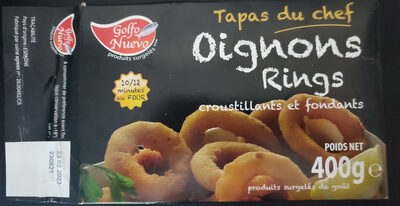Tapas du chef - Aqualis Seafood - 400g
This product page is not complete. You can help to complete it by editing it and adding more data from the photos we have, or by taking more photos using the app for Android or iPhone/iPad. Thank you!
×
Barcode: 3760114350237 (EAN / EAN-13)
Quantity: 400g
Packaging: Cardboard
Brands: Aqualis Seafood
Origin of ingredients: Spain
Manufacturing or processing places: Espagne
Link to the product page on the official site of the producer: http://www.golfo-gourmet.com
Stores: carrefour.fr
Countries where sold: France
Matching with your preferences
Environment
Packaging
Transportation
Report a problem
Data sources
Product added on by kiliweb
Last edit of product page on by rza.
Product page also edited by autorotate-bot, driveoff, openfoodfacts-contributors, yuka.Kp0bEMTQA_QYHMqMjZ8f4xaLMvzuXvRiAiRQow, yuka.UjVnQlNiWXN1Zm9sZ3NZWTBRbnZvZElsbUk2R2ZsK05GYllnSVE9PQ.








